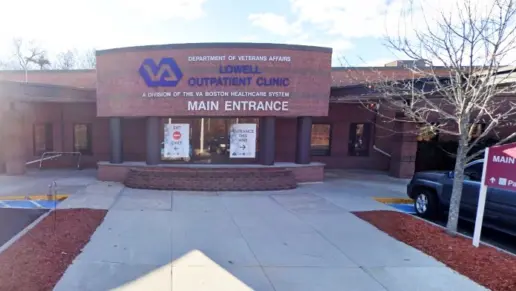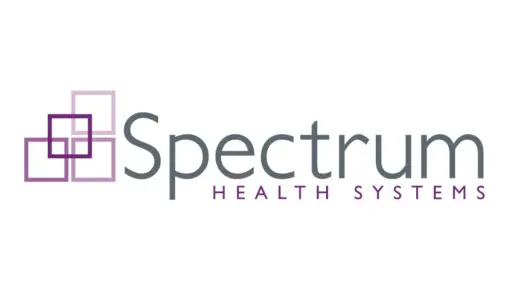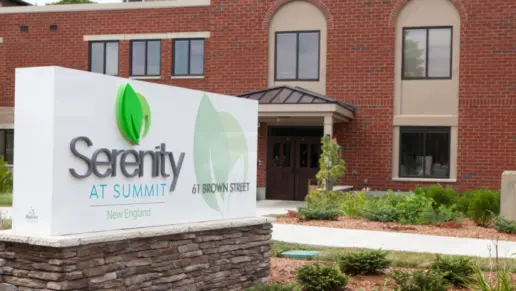My son and I are satisfied with the services since day one. A friend of mine recommended this place, and now I can recommend it. Totally recommend it.
About BILH Behavioral Services
Beth Israel Lahey Health Behavioral Services in Lawrence, Massachusetts provides trauma focused outpatient programs to help folks recover from substance use disorder. They also address co-occurring disorders for folks dealing with both substance misuse and mental issues.
They offer an intensive outpatient program (IOP) which is a structured and clinically intensive day or evening therapeutic support. A partial hospitalization program (PHP) may also be available if you need even more intense support than outpatient therapy. This involves at least six hours of sessions daily for five days a week.
Their program includes individual, group and family counseling alongside education and medication assisted treatment (MAT). You can also access court mandated services like driver alcohol education and court evaluation.
I think it’s neat that they adopt a risk reduction philosophy here. This focuses on effecting positive change without judgment, pressure or shame. You’ll first undergo a comprehensive intake assessment. This helps their clinical team identify treatment needs and craft personalized treatment plans.
Their therapeutic interventions may incorporate evidence based models like trauma focused cognitive behavioral therapy (CBT), Seeking Safety and dialectical behavioral therapy (DBT). These models help you address past trauma fueling your addictive behavior in a safe and conducive setting. They promote emotional regulation and distress tolerance that help you manage cravings and build resilience. Individual therapy lets you work through personal and emotional issues one-on-one with a trained therapist.
Group therapy enables you to connect, interact and share experiences with peers facing similar challenges. It promotes community support and engagement that makes you feel less lonely in recovery. It’s also an avenue to develop positive social interaction, effective communication and healthy relationships. These are important for maintaining a sober lifestyle and preventing relapse.
Family therapy focuses on resolving conflict and improving relationships with your loved ones. This creates a positive family dynamic that strengthens your support network. It’s great that these therapeutic interventions are available virtually via their secured telehealth. This optimizes convenience and makes recovery more comfy.
Their MAT program benefits folks struggling with opioid dependency and mental health conditions. The technique uses meds approved by the FDA alongside behavioral therapy to support recovery. This program is part of the medication management services provided by their skilled clinical team. It involves figuring out the right meds, dosage/timing, safety procedures and managing side effects.
MAT delivers the best recovery outcomes by tackling both the physical and psychological aspects of opioid misuse.
Latest Reviews
Rehab Score
Other Forms of Payment
Private insurance refers to any kind of healthcare coverage that isn't from the state or federal government. This includes individual and family plans offered by an employer or purchased from the Insurance Marketplace. Every plan will have different requirements and out of pocket costs so be sure to get the full details before you start treatment.
Self-pay involves paying for treatment out of your own pocket. You can use savings or credit, get a personal loan, or receive help from family and friends to fund your treatment. If you don't have insurance or your insurance plan doesn't cover a specific program, self-pay can help ensure you still get the care you need.
Medicare is a federal program that provides health insurance for those 65 and older. It also serves people under 65 with chronic and disabling health challenges. To use Medicare for addiction treatment you need to find a program that accepts Medicare and is in network with your plan. Out of pocket costs and preauthorization requirements vary, so always check with your provider.
Military members, veterans, and eligible dependents have access to specific insurance programs that help them get the care they need. TRICARE and VA insurance can help you access low cost or no cost addiction and mental health treatment. Programs that accept military insurance often have targeted treatment focused on the unique challenges military members, veterans, and their families face.
Medicaid is a state based program that helps lower-income individuals and families pay for healthcare. Medicaid covers addiction treatment so those enrolled can use their coverage to pay for rehab. When a program accepts Medicaid the client often pays very little or nothing out of their own pocket.
Addiction Treatments
Levels of Care
Treatments
Many of those suffering from addiction also suffer from mental or emotional illnesses like schizophrenia, bipolar disorder, depression, or anxiety disorders. Rehab and other substance abuse facilities treating those with a dual diagnosis or co-occurring disorder administer psychiatric treatment to address the person's mental health issue in addition to drug and alcohol rehabilitation.
Mental health rehabs focus on helping individuals recover from mental illnesses like bipolar disorder, clinical depression, anxiety disorders, schizophrenia, and more. Mental health professionals at these facilities are trained to understand and treat mental health issues, both in individual and group settings.
Programs



Clinical Services
Cognitive Behavioral Therapy (CBT) is a therapy modality that focuses on the relationship between one's thoughts, feelings, and behaviors. It is used to establish and allow for healthy responses to thoughts and feelings (instead of unhealthy responses, like using drugs or alcohol). CBT has been proven effective for recovering addicts of all kinds, and is used to strengthen a patient's own self-awareness and ability to self-regulate. CBT allows individuals to monitor their own emotional state, become more adept at communicating with others, and manage stress without needing to engage in substance abuse.
Dialectical Behavior Therapy (DBT) is a modified form of Cognitive Behavioral Therapy (CBT), a treatment designed to help people understand and ultimately affect the relationship between their thoughts, feelings, and behaviors. DBT is often used for individuals who struggle with self-harm behaviors, such as self-mutilation (cutting) and suicidal thoughts, urges, or attempts. It has been proven clinically effective for those who struggle with out-of-control emotions and mental health illnesses like Borderline Personality Disorder.
Group therapy is any therapeutic work that happens in a group (not one-on-one). There are a number of different group therapy modalities, including support groups, experiential therapy, psycho-education, and more. Group therapy involves treatment as well as processing interaction between group members.
In individual therapy, a patient meets one-on-one with a trained psychologist or counselor. Therapy is a pivotal part of effective substance abuse treatment, as it often covers root causes of addiction, including challenges faced by the patient in their social, family, and work/school life.
Trauma therapy addresses traumatic incidents from a client's past that are likely affecting their present-day experience. Trauma is often one of the primary triggers and potential causes of addiction, and can stem from child sexual abuse, domestic violence, having a parent with a mental illness, losing one or both parents at a young age, teenage or adult sexual assault, or any number of other factors. The purpose of trauma therapy is to allow a patient to process trauma and move through and past it, with the help of trained and compassionate mental health professionals.
Whether a marriage or other committed relationship, an intimate partnership is one of the most important aspects of a person's life. Drug and alcohol addiction affects both members of a couple in deep and meaningful ways, as does rehab and recovery. Couples therapy and other couples-focused treatment programs are significant parts of exploring triggers of addiction, as well as learning how to build healthy patterns to support ongoing sobriety.
Research clearly demonstrates that recovery is far more successful and sustainable when loved ones like family members participate in rehab and substance abuse treatment. Genetic factors may be at play when it comes to drug and alcohol addiction, as well as mental health issues. Family dynamics often play a critical role in addiction triggers, and if properly educated, family members can be a strong source of support when it comes to rehabilitation.
Contact Information
12 Methuen Street
Lawrence, MA 01840


